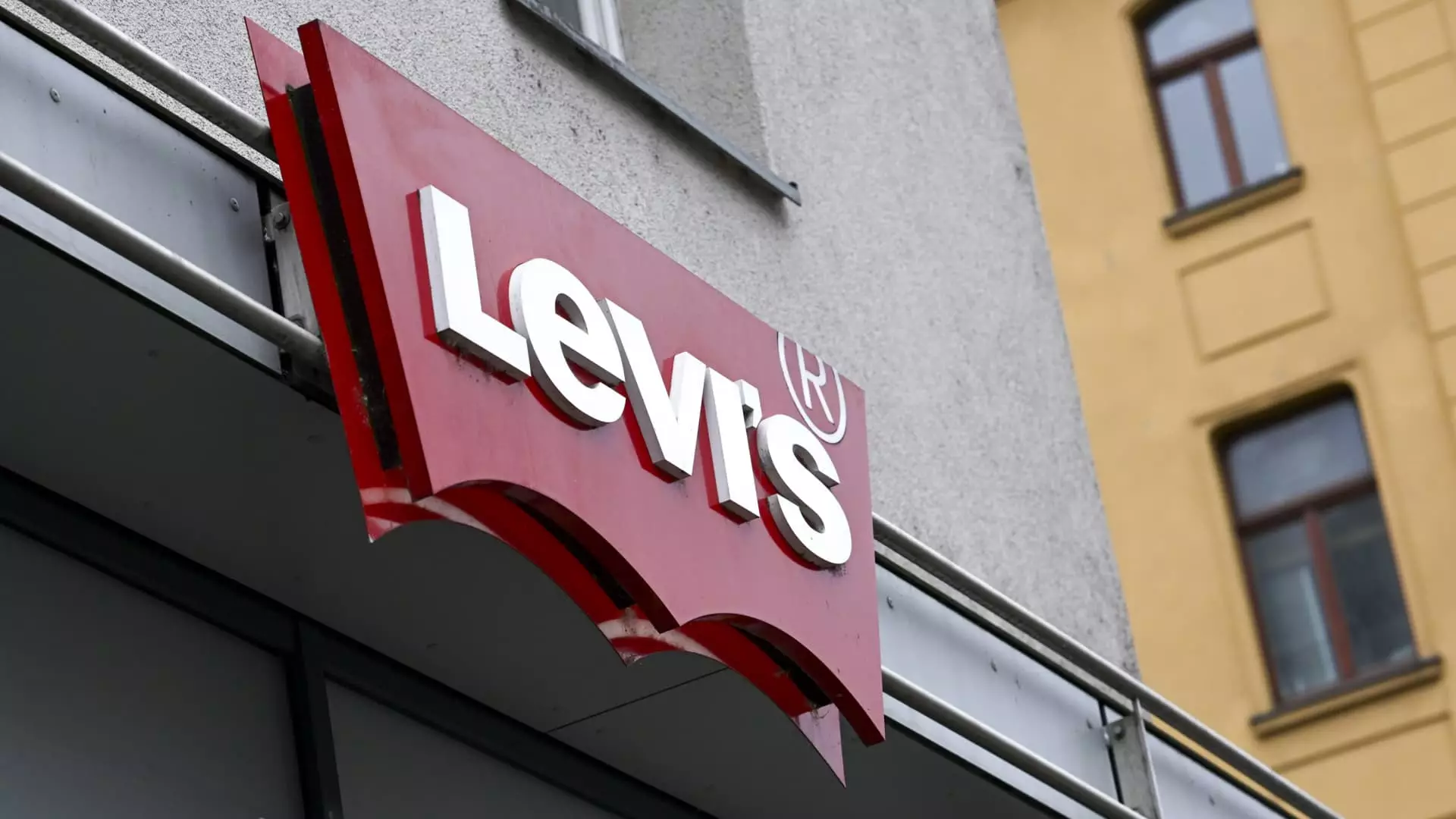The recent announcement that Levi Strauss has agreed to sell its iconic Dockers brand to Authentic Brands Group (ABG) for $311 million marks a significant crossroads—not only for Levi’s but also for the fashion industry at large. While the sale reflects Levi’s strategic move towards direct-to-consumer models, it also signals troubling times for a brand that defined smart casual wear for a generation. The reality is that while Dockers once rode high on the waves of fashion success, it has now become a relic in a rapidly changing consumer landscape.
A Discomforting Trend: The Decline of Khaki
It’s hard not to feel a tinge of nostalgia when recalling the dominance of khakis during the late 20th century. Launched as a sophisticated alternative to denim, Dockers captured the hearts and wardrobes of many, positioning itself effortlessly between formal and casual, embodying an ethos of comfort and style. However, time has a way of upending even the strongest of brands. As jeans surged back into the limelight, particularly with the rise of athleisure, Dockers could not pivot fast enough to regain its place in consumers’ hearts.
The dangers of stagnation are evident here. Although Levi Strauss must make firm decisions to cut loose brands that underperform, one cannot help but question whether the company could have revitalized Dockers instead of relinquishing it entirely. Was the decision to sell purely financial, or does it reflect a failure of vision at the executive level? The reality is often complex—this move seems to stem from a dual issue of legacy versus innovation.
The Brand Management Model: A Double-Edged Sword?
Authentic Brands Group claims it can reinvigorate Dockers through its vast licensing network, suggesting a gleaming new future. However, the efficacy of this brand management approach remains contentious. While ABG has successfully taken brands like Reebok and Nautica global, it also raises questions about the diluted uniqueness of the individual brands within its portfolio. Can Dockers thrive under such a model without losing its coveted identity?
The transaction appears to foretell a larger trend wherein brands are entrusting their legacies to third-party management firms, potentially at the cost of authenticity and original vision. This shift may express a broader crisis in the fashion industry; legacy brands seem to be surrendering not just their products but their soul.
The Economics of Fashion: Strategic Realignment
Levi’s has asserted that selling Dockers was part of their broader strategy focused on enhancing its direct-to-consumer business and investing in future growth opportunities, especially within women’s apparel and denim lifestyles. It’s abundantly clear that in a world where consumer behaviors are evolving rapidly, companies must remain agile. However, one must wonder: is it worth sacrificing a legacy brand to pursue modernity, perhaps at the expense of long-term heritage?
Reports indicate that Levi’s was seeing underwhelming financial figures attributed to Dockers, leading to perceptions of it as a depreciating asset rather than an investable brand. While the move to shed Dockers may bolster immediate revenue prospects, it raises issues for the long-term sustainability of Levi’s identity and market position. Selling off parts of a storied brand in favor of potentially flashier prospects can present a paradox: how do you elevate your main brand while enabling other properties to languish?
A New Era for Dockers?
As Levi’s transitions away from Dockers, the focus shifts back to the brand itself. Matt Maddox of ABG claims that Dockers possesses untapped potential. The world is entering an era where reimagining the familiar could yield groundbreaking results. However, with new ownership comes the daunting responsibility of overcoming previous failures. Can Dockers be redesigned to resonate with contemporary consumers without alienating its established fan base?
In navigating these sensitive waters, it’s imperative to remain cautious yet optimistic. Powerful rebranding efforts could either rejuvenate or further tarnish Dockers’ reputation. The onus lies on the new custodians to reinvigorate this beloved brand, which once ruled casual wear—a challenging endeavor that could either end in glorified triumph or disheartening obscurity. The fashion realm watches and waits, eager to see if Dockers can once again emerge as a staple in a world that moves even faster than its trends.


Leave a Reply